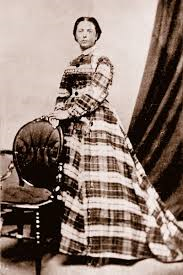Last Chance to enter to win a copy of
Thunder Over the Prairie:
The Story of a Murder and a Manhunt by the
Greatest Posse of All Time

A fresh mound of earth covered Dora Hand’s grave and a sweet breeze danced around the crudely fashioned marker stuck in the dirt where she had been buried. Several bouquets of wilted flowers encircled the wooden tombstone. Although their blooms had faded somewhat, they represented the only color in the soap weed infested cemetery. For a short time after James Kenedy’s acquittal in December 1878, mourners returned to Dora’s plot to deposit fresh flowers, remember the entertainer and reflect on the shooting that took her life.
The news of what James had done and the posse that pursued him followed the cattleman to Texas, and he reveled in the notoriety. Youth often wobbles dangerously, then steadies to follow the straight and narrow path, but not in his case. The injuries he sustained during his capture had left him a cripple, and he was anxious to prove that the disability had not affected his gunplay.
He learned to use his left arm to draw his weapon and rumors prevailed that he killed several men with his quick hand during a brief stay in Colorado in November 1880.
By 1882, James had settled down and married the daughter of a wealthy landowner. He focused on the family business and worked closely with his father, earning the man’s respect and confidence. Neighbors and acquaintances considered James to be a “man of industry with good business qualifications and a trusted manager of Mifflin’s large ranch and cattle business.”
James Kenedy died on December 29, 1884 of tuberculosis, shortly after his son, George Mifflin was born. News of his death was slow to reach Dodge City, but well received. Mayor Kelley was particularly pleased. He had taken the death of Dora Hand hard. His emotional attachment to her, combined with the fact that a bullet intended for him had killed her, had left him devastated. Like many Dodge City residents who had been fond of Dora, Mayor Kelley felt “the only punishment meted out to James had been the sickness he endured from being shot by the posse.” After James was apprehended, Mayor Kelley expected the gunslinger to be found guilty of murdering the songstress and subsequently hung. The mayor was disappointed with the judge’s ruling to acquit.
Mayor Kelley served four terms in office, stepping down from the position in March 1881. He left the job after being accused by his business partner of allowing a customer to pass a counterfeit dollar to him. In spite of the embarrassing incident, residents viewed him as an effective town leader. He helped pass ordinances outlawing houses of ill repute, increased licenses for taverns to help provide services to the community and organized a law enforcement team that eventually became known throughout the territory as the “toughest group of men in the west.”
With the exception of his daughter, Irene, there was no other significant woman in Mayor Kelley’s life. He consorted with very few ladies in public after the loss of Dora and focused much of his attention on his purebred greyhound dogs. In November 1885 a fire burned one of Mayor Kelley’s saloons to the ground. He rebuilt the saloon, but never fully recovered financially and was eventually forced to sell all of his real estate holdings to sustain himself. When his health began to fail in late 1910, he moved to the Soldier’s Home at Fort Dodge.


